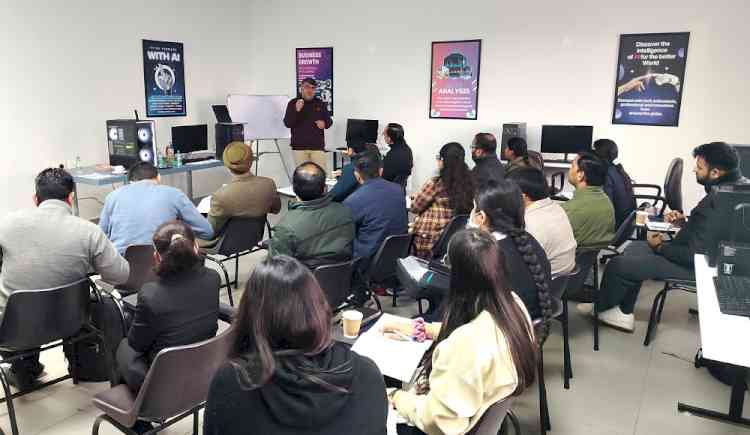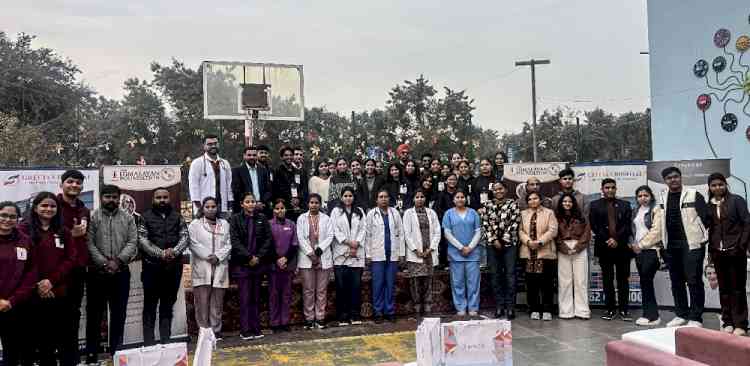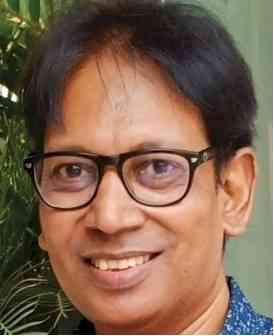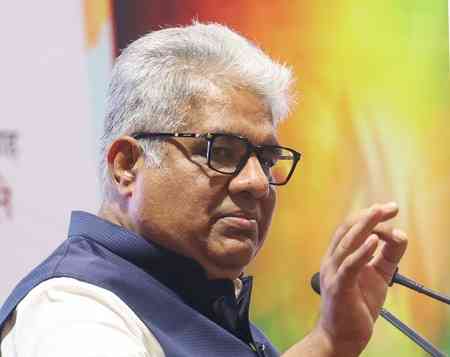UN Security Council former President Kishore Mahbubani addressed members of LMA
"The West is structurally declining, while the East is rising. It's crucial for India to navigate these dynamics strategically,” said Kishore Mahbubani, Former President of the UN Security Council, while addressing the members of the Ludhiana Management Association this morning. He added, "This is India's moment, and the world is preparing for the Asian century.”

Ludhiana, July 9, 2024: "The West is structurally declining, while the East is rising. It's crucial for India to navigate these dynamics strategically,” said Kishore Mahbubani, Former President of the UN Security Council, while addressing the members of the Ludhiana Management Association this morning. He added, "This is India's moment, and the world is preparing for the Asian century.”
The Ludhiana Management Association (LMA) hosted a highly engaging Google Meet session titled "India's Destiny: To Join The East Or The West?" It drew attention from professionals, academicians, and students, as well as management associations from across the country. Defence officers and heads of missions from two embassies in New Delhi also joined the event.
The virtual session was moderated by renowned geopolitical journalist Mr. Dinesh Kumar and attended by about 200 participants. “India continues to remain non-aligned in critical situations like the Ukraine war and the Israel-Gaza conflict, maintaining its independence in global politics. India must navigate its strategic autonomy while enhancing its global standing,” said Harpreet K Kang, President of LMA. She underscored the significance of such discussions in enriching the understanding of global affairs among Indian professionals and scholars.
Mahbubani elaborated on two primary points: the structural decline of the West and the rise of the East. He highlighted the multifaceted challenges facing the West, including economic, geopolitical, and spiritual/cultural issues, using the European Union as an example of economic decline compared to the dynamic growth of ASEAN countries. He noted that while the EU grapples with domestic issues and geopolitical challenges, ASEAN countries have made significant contributions to the global economy.
In his analysis of the geopolitical landscape, Mahbubani discussed the impact of conflicts on the EU, specifically the Russia-Ukraine war. He pointed out that while the West imposed sanctions on Russia, 85% of the global population did not, indicating a disconnect in global geopolitical strategies. He predicted that by 2050, Europe might transform into a beautiful museum for the world due to its economic, geopolitical, and cultural decline.
Mahbubani also acknowledged the resilience of the USA, highlighting its economic strength and talent pool, including the contributions of prosperous Indians to its economy. However, he pointed out the lack of long-term strategic plans in the USA compared to China's comprehensive strategies. He warned against underestimating China and highlighted the significant internal divisions in the USA, which pose a structural challenge.
Addressing concerns about whether joining the Regional Comprehensive Economic Partnership (RCEP) would put India's international trade in deficit, Mahbubani argued that India's decision not to join RCEP was a gift to China, slowing India's growth while benefiting China. He emphasized that China followed a creative destruction model, eliminating uncompetitive companies and growing stronger. He recommended that India join RCEP for its economic interests.
Discussing the rise of the East, Mahbubani cited China's successful economic management and the growth of ASEAN countries. He criticized the Anglo-Saxon media's skewed portrayal of China and emphasized the geopolitical competence of ASEAN countries, which have benefited from their neutral stance on China and the USA. He also noted that the USA has invested more in Southeast Asia than in India, China, and Japan.
When asked about the impact of Sino-India border issues on the rise of the Asian century and whether China has an aggressive posture towards ASEAN countries, Mahbubani cited former Indian Prime Minister Manmohan Singh's view that "the sky is big enough for both." He stressed the importance of understanding the difference between aggressive and assertive, noting that although China has the military capacity to take over the South China Sea, it has shown great restraint and has been careful not to invade other territories. He referenced Huntington's anticipation of Western angst about dealing with a world they cannot control and emphasized that India could act as a bridging civilization between the East and West.
When questioned about which country would lead the global South, Mahbubani stated that a combination of countries would take the lead. He highlighted that China has not exercised global leadership, whereas India has shown leadership qualities and can become a global leader. However, he stressed that India needs to engage more with South America and Africa to solidify its leadership position.
The session concluded with closing remarks by Lokesh Jain, General Secretary of LMA, who thanked everyone for the wonderful session.


 City Air News
City Air News 










